healthandbeautylistings.org
THE most comprehensive health and beauty website review service
★ Get your own unique FAQ + Selling Points on your profile page
★ be seen by 1000s of daily visitors and win new business
healthandbeautylistings.org Ephemeral Miniblog
Green Juice and the Acid Lie
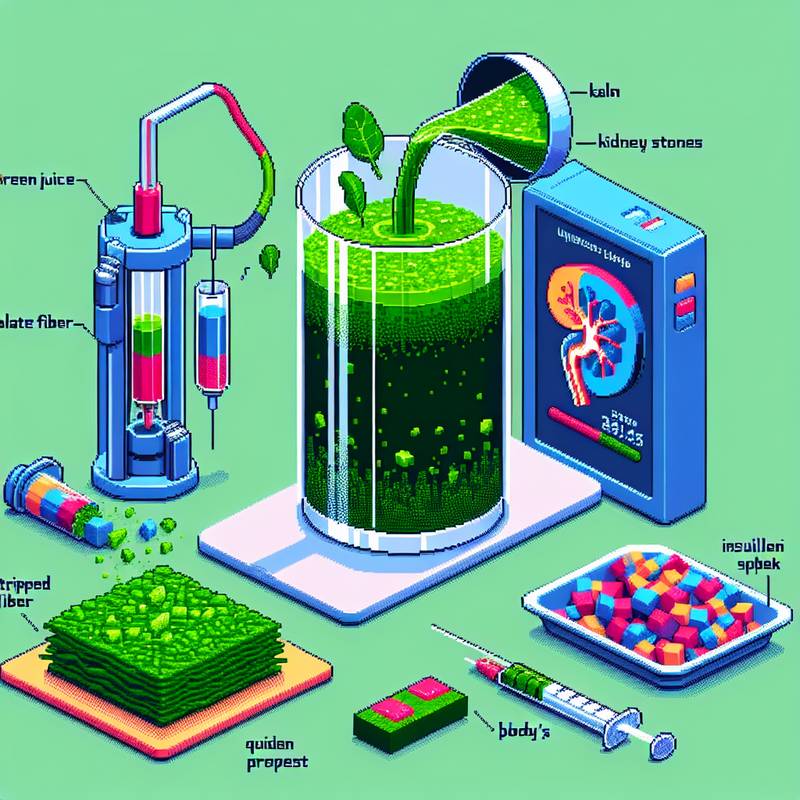 Green Juice and the Acid Lie
Green Juice and the Acid LieThe juiceheads will tell you it's all chlorophyll enlightenment and alkaline glory. But crank the microscope in closer, my friend — that righteous green sludge coursing down your throat might be a Trojan horse. Packed with spinach, kale, and Swiss chard, it hums with oxalates — those crystalline bastards known to build kidney stones like manic architects.
You're mainlining nature’s own industrial waste, thinking it’s salvation. And in the name of detox, you're flooding your body with a compound designed by plants to repel grazing animals. You think your gut is celebrating? It's staging a quiet protest.
Worst part? Most of these juices strip the fiber and toss it — that’s the ballast, the regulator. What you’re left with is a sugar-laced, mineral-stripping green missile that spikes your insulin and leaves your kidneys holding the bag. This is the health cult's dirty secret.
It's a jungle out there, pal. And the plants might be fighting back.
Loading...
Walking the Line
 Three months ago, I thought self-care was something people did on Instagram to justify buying expensive soap. I’d roll out of bed groggy, skip breakfast, and dive straight into stress like it was a hobby. My body felt like a flat iPhone battery—technically on, but always at 2%.
Three months ago, I thought self-care was something people did on Instagram to justify buying expensive soap. I’d roll out of bed groggy, skip breakfast, and dive straight into stress like it was a hobby. My body felt like a flat iPhone battery—technically on, but always at 2%.Then, in a moment of minor rebellion against my own chaos, I started walking in the mornings. Not a fitness bootcamp. Just a walk. Twenty minutes of moving legs, breathing real air, seeing trees that were there the whole time but had apparently decided to start being beautiful.
Now? I still have problems, of course—I haven’t transcended into Gwyneth Paltrow. But I no longer need three coffees just to blink. Mornings feel less like a punishment. My shoulders have lowered several centimetres from my ears. And somewhere in that walk, I started listening—properly listening—to myself.
Turns out, when you stop treating your body like a grudging taxi for your brain, the whole system works better.
Loading...
The Tyranny of Wellness
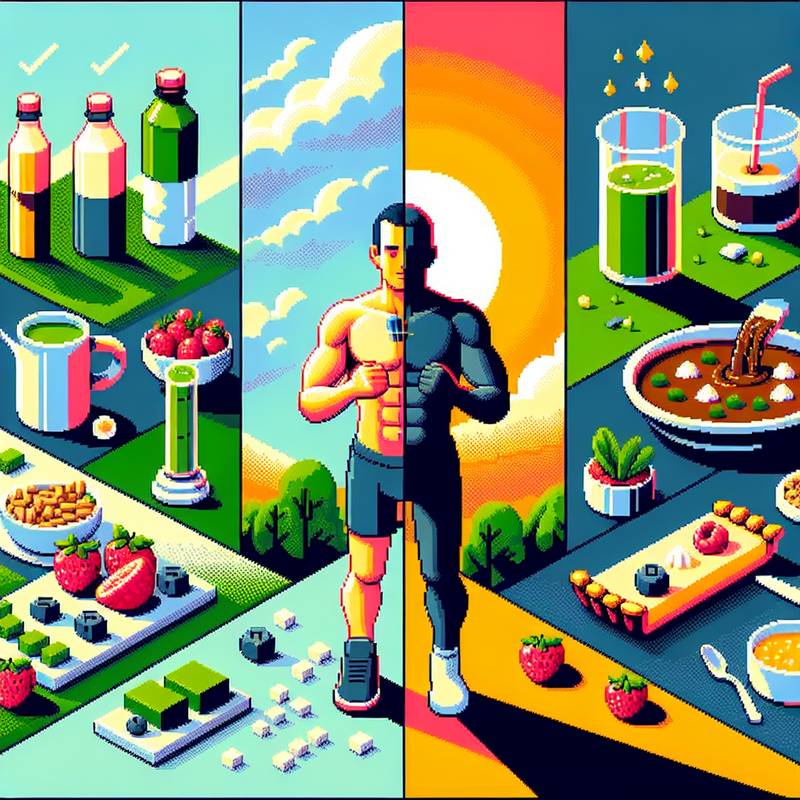 To rise at dawn, drink water by the gallon, and jog until one’s knees resemble those of a feeble cart horse is, in our age, considered the very emblem of virtue. Yet I must inquire—if a man sleeps with the regularity of a sundial, eats grains till his breath smells of hay, and cannot permit himself the scandalous pleasure of a tart or an idle afternoon—what, precisely, has he gained? An austere longevity perhaps, but at what cost?
To rise at dawn, drink water by the gallon, and jog until one’s knees resemble those of a feeble cart horse is, in our age, considered the very emblem of virtue. Yet I must inquire—if a man sleeps with the regularity of a sundial, eats grains till his breath smells of hay, and cannot permit himself the scandalous pleasure of a tart or an idle afternoon—what, precisely, has he gained? An austere longevity perhaps, but at what cost? Moderation, once the ancient physician’s golden rule, is now replaced by orthorexic zeal. The daily green juice is hailed as panacea, though it purges both bowels and bank accounts. And consider fasting, the modish practice of making hunger a hobby—done more for fashion than health. Meanwhile, grandmother’s stew, thick with marrow and wisdom, is cast aside as dietary heresy.
Health advice is oft recited with the fervor of gospel, but rarely examined with the quiet courage of doubt. What if a little indulgence, and not perfection, keeps the body and spirit most sound?
Loading...
Ten Minutes to the Left of Chaos
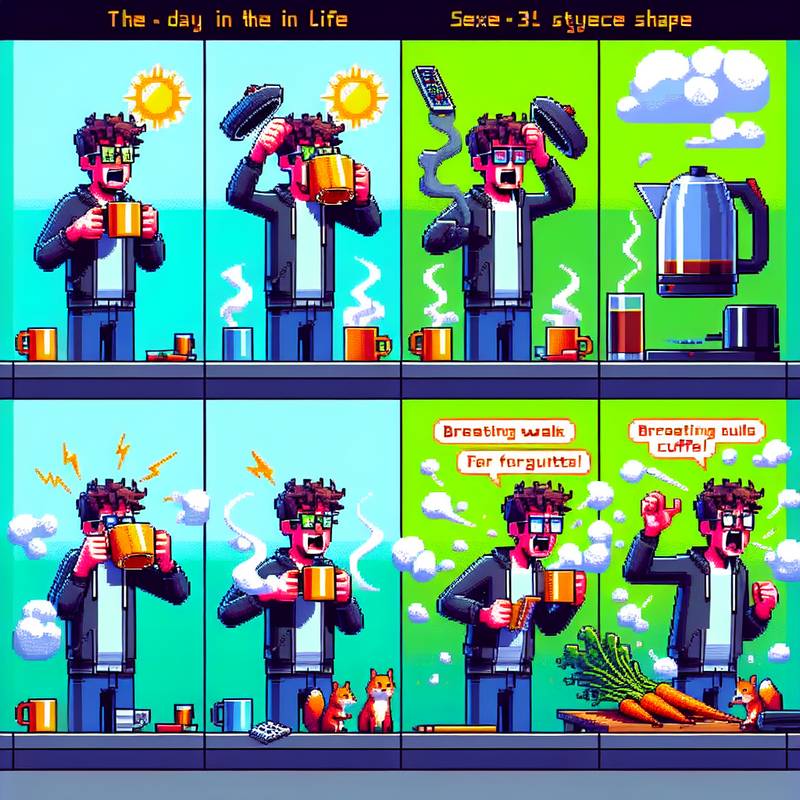 The kettle boils for a third time—once for tea, twice forgotten. It’s 10am. You’ve misplaced your glasses again, only to find them on your head, and you haven’t exhaled since scrolling through the news headlines thirty minutes ago. The only stretching you've done is reaching for the remote. Breakfast? A coffee. Emotions? Mildly erratic.
The kettle boils for a third time—once for tea, twice forgotten. It’s 10am. You’ve misplaced your glasses again, only to find them on your head, and you haven’t exhaled since scrolling through the news headlines thirty minutes ago. The only stretching you've done is reaching for the remote. Breakfast? A coffee. Emotions? Mildly erratic.Fast forward six weeks. The morning begins not with caffeine, but with a ten-minute walk, during which you shout encouraging things at squirrels. You discover this odd ritual has replaced self-flagellation with a form of amused bewilderment, which is, surprisingly, quite medicinal. Your breathing is less like panic and more like punctuation.
The kettle still boils, but now it’s deliberate—and quite often followed by something green and infused. You’ve also started chopping carrots for fun. You’ve become, unmistakably, an amateur philosopher of celery.
The key wasn’t transformation—it was a nudge. Just a nudge. Ten minutes, one habit, a shift so small it almost needed a microscope. But the view from here? Remarkably clearer.
Loading...
If You Only Do One Thing: Go to Bed
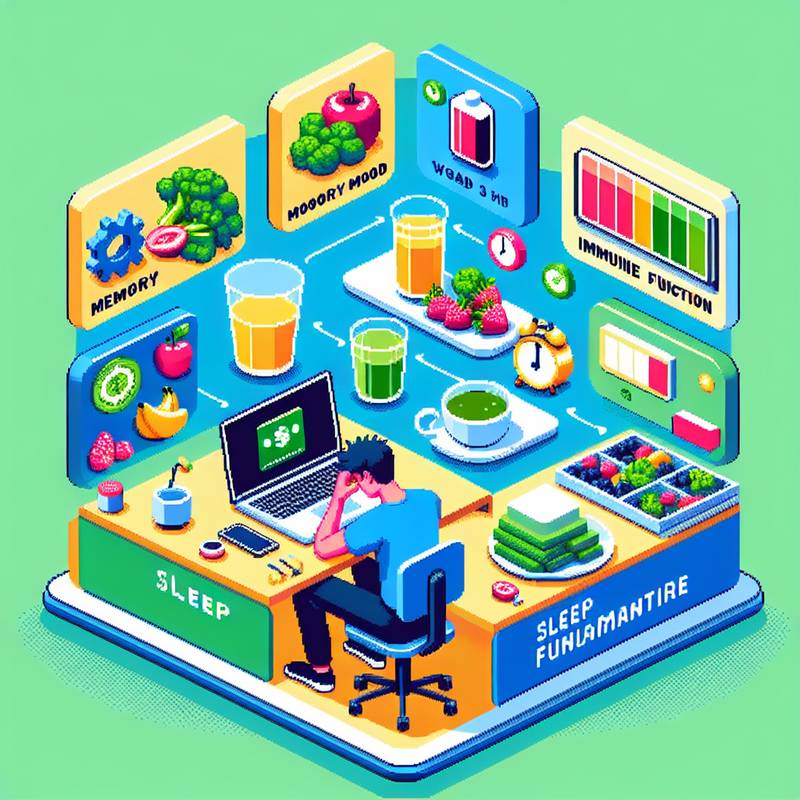 Here’s the thing we rarely want to hear but really need to: if you’re going to change just one behavior for your health, go to bed—seriously. Consistently. At a halfway decent hour. Yes, sleep. The thing we all pretend we can function without, as if face-planting into your keyboard by 3 p.m. isn't a sign.
Here’s the thing we rarely want to hear but really need to: if you’re going to change just one behavior for your health, go to bed—seriously. Consistently. At a halfway decent hour. Yes, sleep. The thing we all pretend we can function without, as if face-planting into your keyboard by 3 p.m. isn't a sign.Mountains of research confirm that insufficient sleep affects everything from memory and mood to immune function and metabolism. It’s like your body’s software update—but instead of new emojis, you get fewer heart attacks and better decision-making.
And don’t romanticize your 4-hours-a-night grind as some badge of honor. That’s not hustle—that’s slow-motion self-sabotage. You wouldn’t let your phone run on 15% battery all day, so why do it with your brain?
If wellness trends are a buffet of kale smoothies and goat yoga, sleep is the damn plate. Without it, none of the other stuff sticks. So, for the love of your hypothalamus, go. to. bed.
Loading...
What No One Tells You About Green Juice
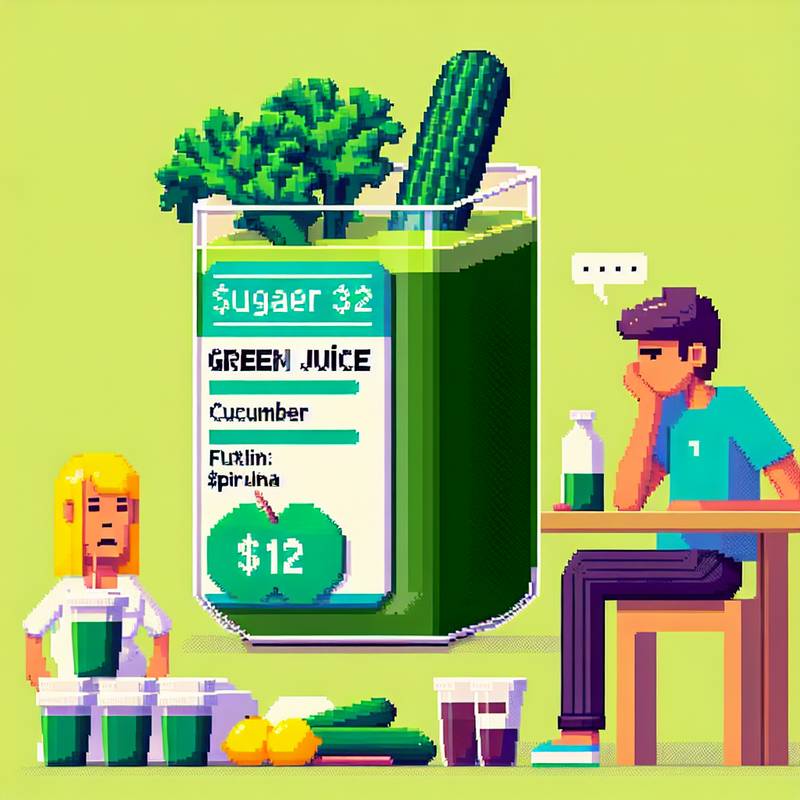 Green Juice Gave Me Trust Issues
Green Juice Gave Me Trust IssuesYou’d think starting your day with a $12 green juice loaded with kale, cucumber, and something called “spirulina” would make you healthy, virtuous, and maybe a little bit Gwyneth Paltrow. But no one tells you that drinking green juice can actually mess with your blood sugar. That’s right—despite its hippie Whole Foods vibe, that juice is basically sugar water in a celery disguise.
Without the fiber from whole fruits and veggies (because it's all pulverized), your body absorbs the sugar like it's at a rave. The result? A huge spike in blood sugar, followed by a crash so hard you start yelling at your plants. Also, your stomach is like, Where’s the substance? You drank your breakfast instead of eating it—congrats, you’re starving by 10 a.m.
Trust me, I wanted to be the girl clutching a green bottle like a fashion accessory. But I also wanted to not be cranky and bloated. So now I just eat real food. Revolutionary, I know.
Loading...
You’re Not Detoxing, You’re Peeing
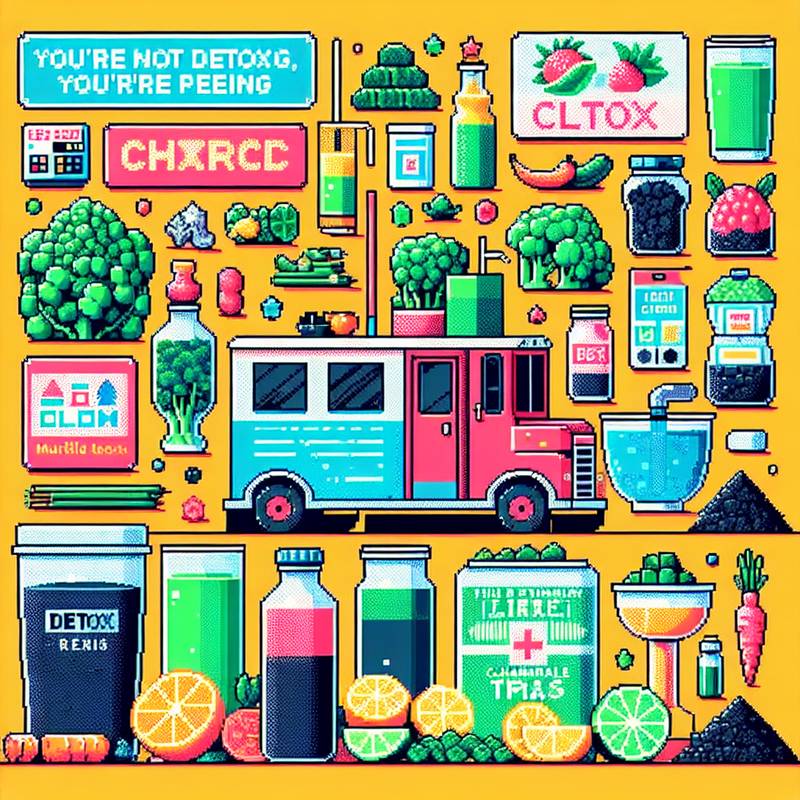 You’re Not Detoxing, You’re Peeing
You’re Not Detoxing, You’re Peeing You’ve seen the ads—juice cleanses, detox teas, charcoal smoothies. All claiming to flush toxins from your body. Spoiler: your liver and kidneys already do that. Constantly. For free. They didn’t go on strike because you skipped kale for a week.
The idea that you can press some magical reset button by drinking spinach sludge for three days is nonsense. The human body isn’t a clogged sink—it doesn’t need lemon water and cayenne to 'flush out' toxins. Actual detox is what happens in hospitals when someone overdoses. Not when someone drinks cucumber-infused water and posts it on Instagram like they’ve just reinvented medicine.
Evidence-based truth? Eat real food, drink water, get sleep, don’t smoke, and move a bit. Boring, yes. But it works. If there really were a miracle detox product, we wouldn’t have ICUs—we’d have smoothie bars and scented candles in operating theatres.
So unless your “toxin” is excessive gullibility, maybe skip the nonsense.
Loading...
Checklist or Red Flags? Tune-Up Time for Your Temple
 Do you nap more than a snoozy tortoise in a hammock? Could be a red flag — or just an ill-timed cheese feast. Behold the checklist of bodily bamboozlement:
Do you nap more than a snoozy tortoise in a hammock? Could be a red flag — or just an ill-timed cheese feast. Behold the checklist of bodily bamboozlement: - Thirsty? If your mouth’s drier than a sock in the Sahara, your hydration habits might be wobbly.
- Snack-splosion? When your snacks have snacks, your blood sugar may be on a waltzer ride.
- Sleep Shenanigans? If you wake up feeling like a deflated lilo, that’s no victory snooze.
- Rage of the Raisin? Mood swings from ‘jolly jackanapes’ to ‘doom goblin’ aren’t just eccentric flair — check your stress heap.
- Motionless Mike? If your weekly exercise amounts to chasing a snail, time to pump those pistons.
The body is a whispering walrus — it nudges, it hints, it pings. A good habit is a tune-up for the cosmic jalopy you drive around each day. Tune it or lose it.
Loading...
Myth: You Need 8 Glasses of Water a Day
 You ever hear someone say, “You need to drink eight glasses of water a day”? Like it’s a legal requirement, or the cops will show up if you’re on number six and stall out. That “8 glasses” thing? It’s not a medical rule—it’s a myth that has hydrated its way into our collective guilt.
You ever hear someone say, “You need to drink eight glasses of water a day”? Like it’s a legal requirement, or the cops will show up if you’re on number six and stall out. That “8 glasses” thing? It’s not a medical rule—it’s a myth that has hydrated its way into our collective guilt.The truth is: your body knows what it wants. It's called thirst. Revolutionary, I know. You don't need to line up little water bottles like you're preparing for a hydration-themed runway show. The National Academies of Sciences says most healthy people get enough fluids just by drinking when they’re thirsty and eating food—because food has water in it. That's right! Your lasagna is secretly helping.
Overhydrating? That can actually be harmful—hyponatremia is a thing, and it’s not the name of a Roman emperor.
So if you’re walking around with a gallon jug like you're in basic training, maybe relax. You're not a cactus, but you're probably already doing okay.
Loading...
Sleep Better: Exile Your Phone
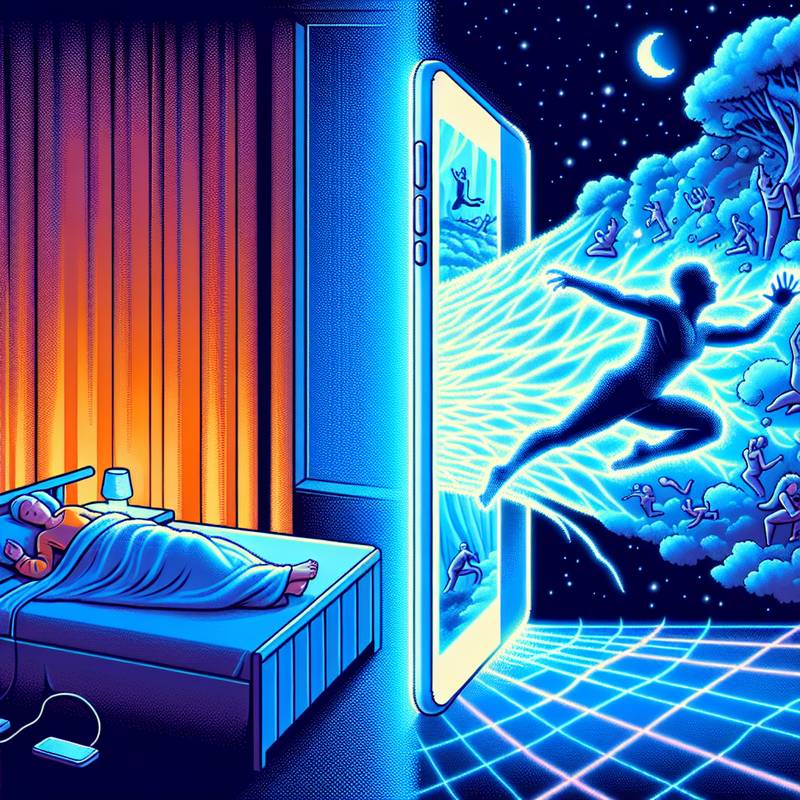 You want to feel better? Stick your phone in another room while you sleep. That’s it. Don’t cradle it like a needy ex. Just give your brain a break. Studies from Harvard and Stanford say blue light isn’t just ruining your melatonin—it’s messing with your soul. Okay, not scientifically proven on the soul part, but still.
You want to feel better? Stick your phone in another room while you sleep. That’s it. Don’t cradle it like a needy ex. Just give your brain a break. Studies from Harvard and Stanford say blue light isn’t just ruining your melatonin—it’s messing with your soul. Okay, not scientifically proven on the soul part, but still.That little glowing screen triggers stress. Cortisol spikes. Heart rate ticks up like you're being chased by a tiger who knows your unlock code. And all those late-night scrolls through performative yoga poses on Instagram? They're not helping your insomnia.
Here’s the science: Human brains respond to light the way raccoons respond to trash—irrationally. Blue light tells your brain it’s still daylight. So melatonin production drops, which messes with your sleep cycle and leaves you feeling like a hungover sloth the next day.
The fix? Charge your phone across the room or, if you're a true hero, in another room. You’ll sleep deeper, dream weirder, and maybe even remember where your sanity went.
Loading...
The Static Between Signals: Insulin Resistance Explained
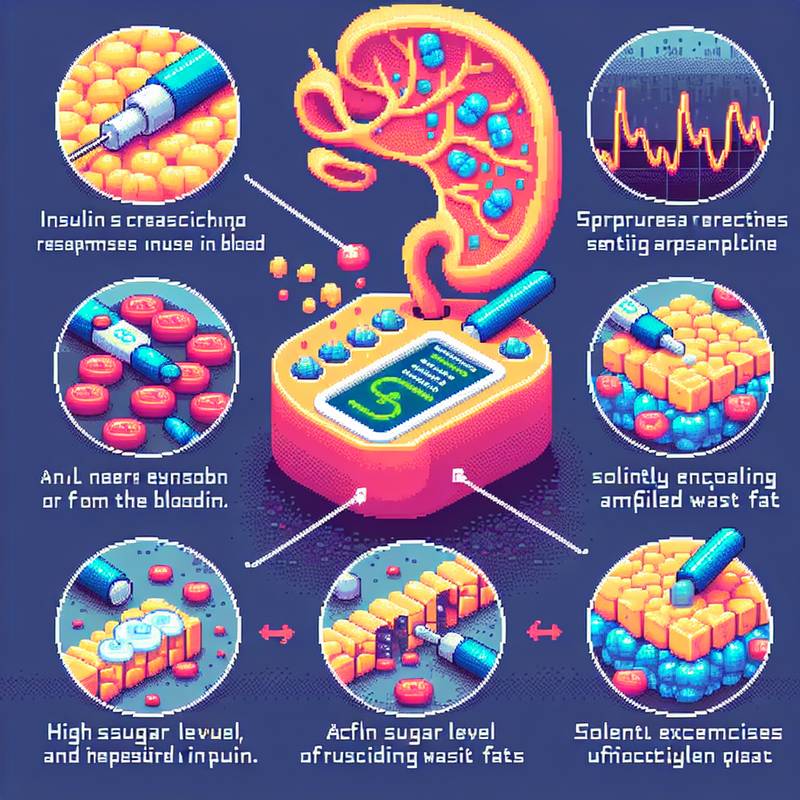 Insulin whispers to your cells, telling them to open up and take in sugar from your blood. But what if they stop listening? That’s insulin resistance. It’s not an all-at-once rebellion—it’s a slow tuning-out, like a radio station getting fuzzier day by day until all you hear is static and the signals no longer get through.
Insulin whispers to your cells, telling them to open up and take in sugar from your blood. But what if they stop listening? That’s insulin resistance. It’s not an all-at-once rebellion—it’s a slow tuning-out, like a radio station getting fuzzier day by day until all you hear is static and the signals no longer get through.Your pancreas, the overworked dispatcher, responds by sending more insulin, trying to shout louder. For a while, it works. But over time, the effort exhausts it. Sugar stays in the blood, stacking up like forgotten messages in a broken inbox.
You feel it in the fatigue, the brain fog, the slow, creeping increase of fat around the waist. And most don’t realize it’s begun—until it’s already in motion. Insulin resistance is a quiet slide toward type 2 diabetes, but it can be reversed. Movement, sleep, and eating less sugar—it’s not just lifestyle, it’s hacking the system back to sensitivity.
This isn’t just biology. It’s communication breaking down between body and self.
Loading...
The Gospel of Moderation Misplaced
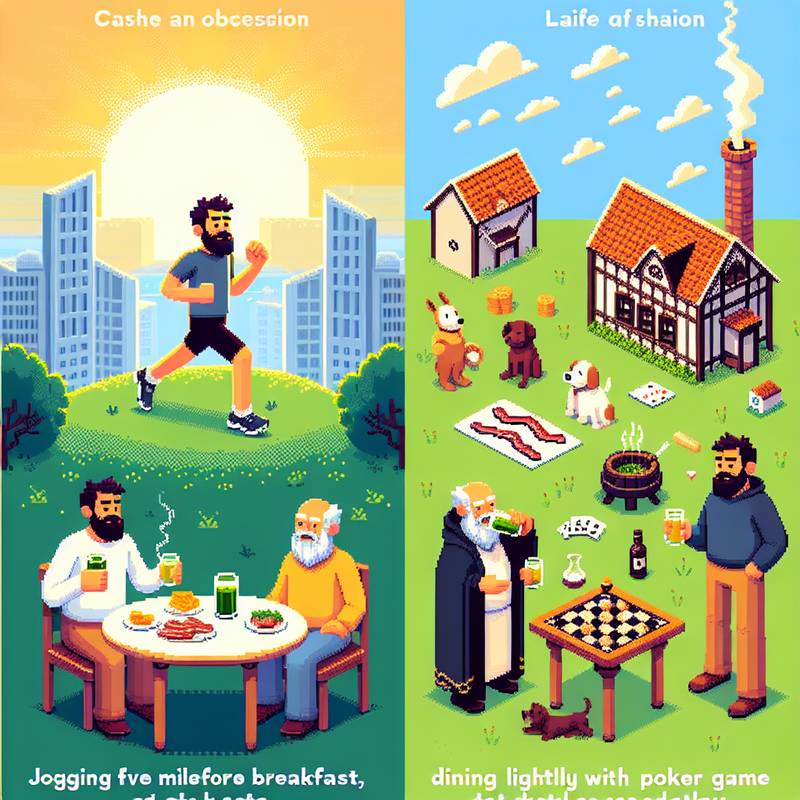 They say you must rise at dawn, run five miles before breakfast, and drink a pond’s worth of kale juice to live long and prosper. But I’ve seen men who spent their lives chewing flaxseed and blinking at the sun die younger than a blacksmith who favored bacon and poker on Tuesdays. The trouble isn't in effort, but in forgetting the difference between principle and fashion.
They say you must rise at dawn, run five miles before breakfast, and drink a pond’s worth of kale juice to live long and prosper. But I’ve seen men who spent their lives chewing flaxseed and blinking at the sun die younger than a blacksmith who favored bacon and poker on Tuesdays. The trouble isn't in effort, but in forgetting the difference between principle and fashion.Now, I don't fault a man for chasing health, but I do suspect the chase often outruns the quarry. Obsession with purity—no sugar, no sitting, no joy—has turned wellness into a religion where guilt is the only sacrament. Yet, the old folks I knew with the clearest minds and sturdiest frames walked their dogs daily, told good stories, took their whiskey in moderation, and slept like children—without an app.
Science is grand, but wisdom must sit beside it. A life lived with balance, not fanaticism, may be the finest tonic of all.
Loading...
Green Juice and Other Minor Tragedies
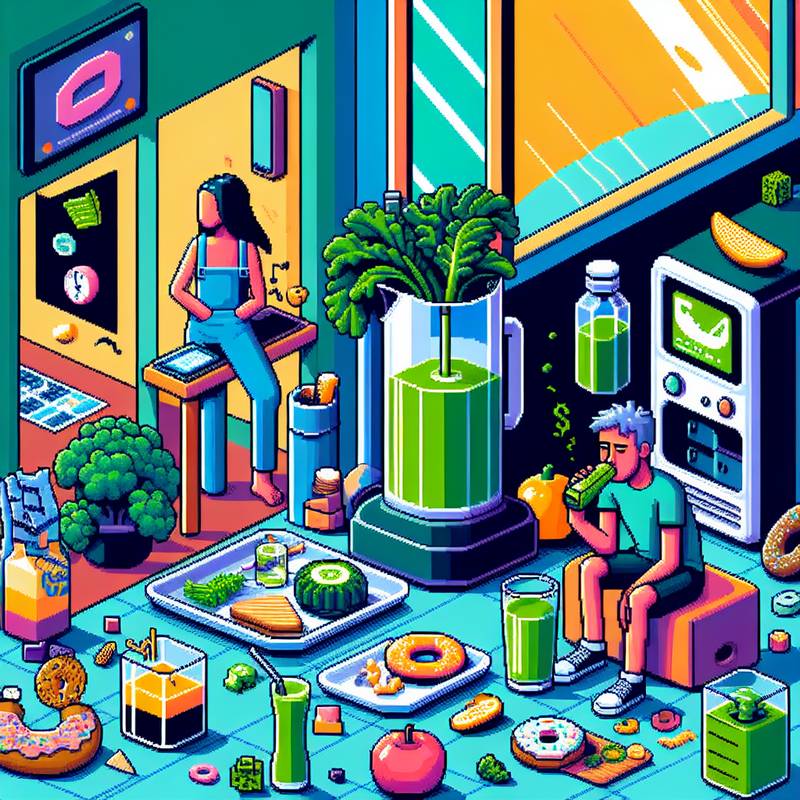 Green Juice and Other Minor Tragedies
Green Juice and Other Minor TragediesThere’s a particular kind of smugness that only kale can inspire. It's the face people make when they tell you they’ve swapped espresso for spirulina. But here’s the thing: not all bodies want to be cold-pressed. Some of us feel healthier after a bagel than after a $14 chlorophyll tonic. And no one talks about that.
Wellness advice is often an echo chamber for the genetically blessed and the metabolically gifted. We pretend celery juice will cure fatigue when maybe it’s just that we went to bed at 1 a.m. binging documentaries about dopamine. We blame bread for bloating, but ignore cortisol, loneliness, and deadlines.
Health isn't a universal blueprint; it’s a mosaic of your childhood, your gut bacteria, your grandmother’s stubborn genes. So maybe load your smoothie with flaxseeds—just don’t assume it’s a moral victory. And if the treadmill feels like a conveyor belt of existential dread, you can walk around the block instead.
You’re not a failure. You’re just a person. Kale notwithstanding.
Loading...
The One-Legged Miracle
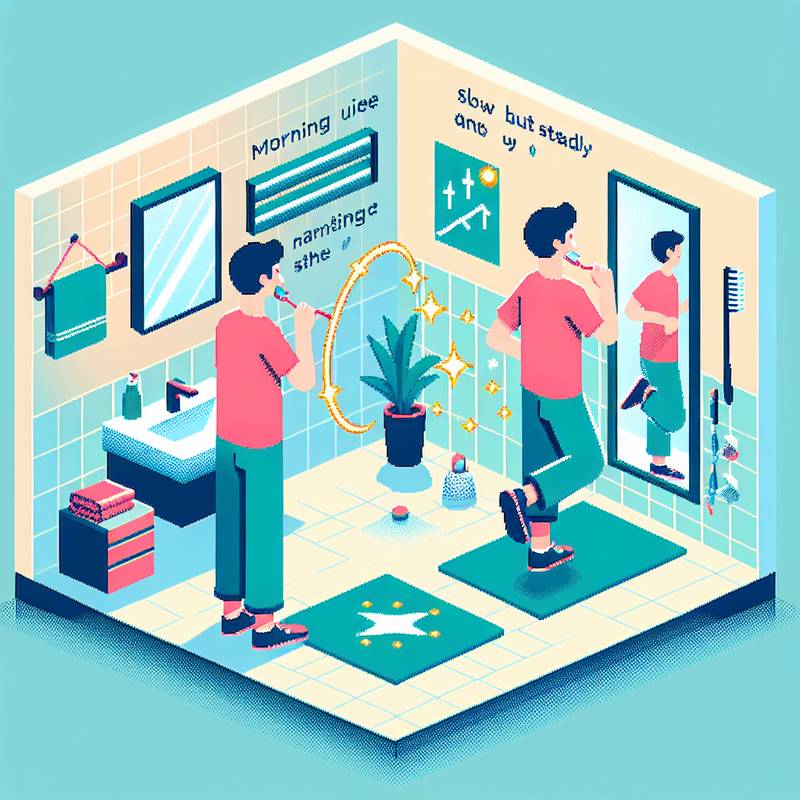 Three minutes of standing on one leg each morning, just after brushing your teeth—absurdly simple, yet the effect stares you in the face once you’ve done it for a month. Balance, it turns out, isn’t just about not falling over. It tightens your core, sharpens proprioception (your body’s dull way of keeping tabs on itself), and does a surprising bit for your mind as well.
Three minutes of standing on one leg each morning, just after brushing your teeth—absurdly simple, yet the effect stares you in the face once you’ve done it for a month. Balance, it turns out, isn’t just about not falling over. It tightens your core, sharpens proprioception (your body’s dull way of keeping tabs on itself), and does a surprising bit for your mind as well.Your foot wobbles, your calf burns, and you think, “Christ, is this all it takes?” But spend that time—not flailing, exactly, but correcting—day in and day out, and you’ll notice you’re walking straighter, navigating stairs like you belong to a younger decade.
It’s not glamorous. No Lycra, no motivational slogans, no expensive kit. Just you, your foot, and the slow, unexpected realisation that your balance was worse than you thought—but now, blessedly, better. Three minutes. Two feet, one at a time. In the end, it’s the small routines that sneak up behind you and do you good.
Loading...
Three Minutes at the Mirror
 She stood at the mirror each morning, not brushing her hair, not painting her face, just breathing—with intention, with weight. Three minutes of stillness, eyes closed, hands warm against her ribs, feeling the ribs widen like an old house sighing open. It wasn’t meditation, she said. It was claiming residence inside herself.
She stood at the mirror each morning, not brushing her hair, not painting her face, just breathing—with intention, with weight. Three minutes of stillness, eyes closed, hands warm against her ribs, feeling the ribs widen like an old house sighing open. It wasn’t meditation, she said. It was claiming residence inside herself.The doctor had told her the panic was a storm brewed from shallow lungs—air that barely skimmed the surface of her life. So now, before coffee, before email, she’d breathe in for four, hold for four, out for four. A triangle drawn in air, over and over again.
Weeks passed. Her sleep softened. Her hands stopped shaking when the phone rang. Her voice—once a bird trapped high in the throat—settled lower, more certain. Just three minutes. Not a miracle, no. But like a quiet piano chord at twilight—it changed the room.
You don’t always need a grand gesture. Sometimes, it’s the fidelity to a small ritual that brings you back to yourself.
Loading...
The 3-Minute Routine That Changed Elena
 At precisely six o’clock each morning, Elena stood barefoot on her kitchen tiles, spine straight, eyes closed. Three minutes. That was all. She called it her “reset”—a strange ritual, whispered about with curiosity at book club meetings and over teacups at the office.
At precisely six o’clock each morning, Elena stood barefoot on her kitchen tiles, spine straight, eyes closed. Three minutes. That was all. She called it her “reset”—a strange ritual, whispered about with curiosity at book club meetings and over teacups at the office.It had begun with a dare—breathe deeply, she’d been told, three minutes a day, no distractions. Inhale through the nose with purpose, exhale out the mouth like you’re releasing secrets. Sounds simple, ignorable even. But three weeks in, Elena noticed the edge had dulled, the usual cloud of midday fatigue lifting like fog on the Hogwarts Express track.
There was science in it, of course—oxygen flow and cortisol levels—but it felt like magic. With each measured breath, she was coaxing her nervous system back to calm, reclaiming focus, anchoring her day in those quiet, invisible moments.
The grandest spells are often the quietest. Three minutes of breath. No wand required.
Loading...
The First Three Minutes
 He stood at the kitchen sink each morning, not in contemplation but survival, balancing the weight of another sleepless night on his bones. The cup of water trembled in his hand — not from weakness, but from remembering. A single glass. Room temperature. Into it: the juice of half a lemon, a pinch of sea salt, and three slow breaths while it settled.
He stood at the kitchen sink each morning, not in contemplation but survival, balancing the weight of another sleepless night on his bones. The cup of water trembled in his hand — not from weakness, but from remembering. A single glass. Room temperature. Into it: the juice of half a lemon, a pinch of sea salt, and three slow breaths while it settled.This became his three-minute salvation.
Not a miracle, no — miracles are for plays and prayers. But something shifted. His joints no longer cried at dawn. His sleep, while still a cautious visitor, lingered longer. His mind, once fogged with the thick sorrow of routine, gained a shade of alertness, color even.
It was small. Insignificant, perhaps, to those who chase thunderclaps. But in his quiet world, this simple ritual was rain — slow, deliberate, and full of promise.
“I gave myself three minutes,” he whispered once, “and it gave me back a part of myself I’d forgotten.”
And that, in the end, was enough.
Loading...
Sleep Cycles Are Not Optional
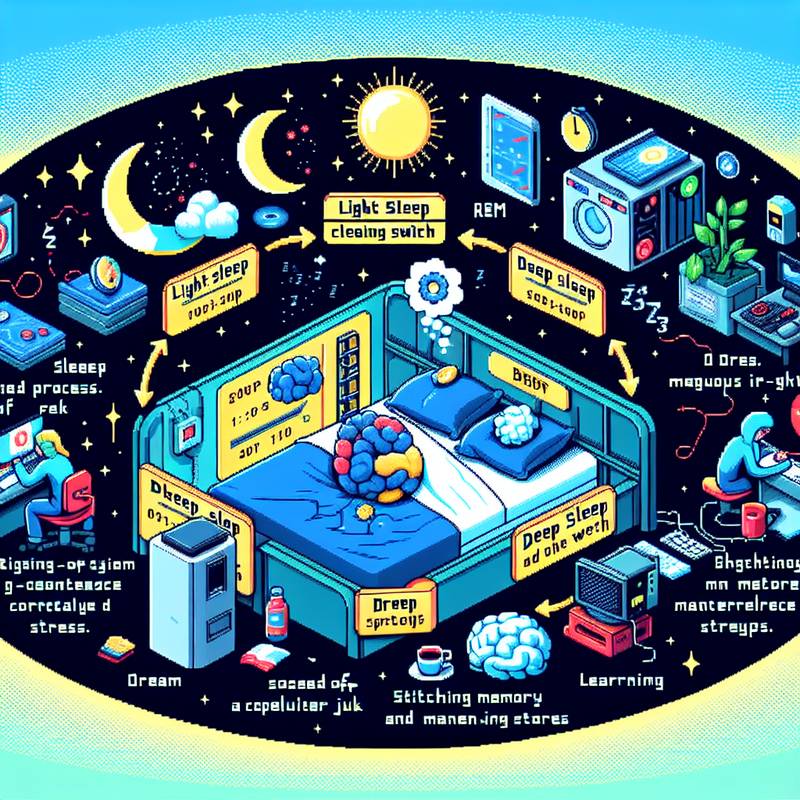 The mind assumes sleep is an off switch, a nightly power-down. But it’s more like a scheduled maintenance cycle—meticulously timed and deeply essential. Your brain runs through sleep in phases: light sleep, deep sleep, and REM (Rapid Eye Movement). Each stage has a purpose. Deep sleep cleans out cellular junk, like old files being shredded. REM is where memory and emotion get stitched into coherent stories—dreams, yes, but also learning.
The mind assumes sleep is an off switch, a nightly power-down. But it’s more like a scheduled maintenance cycle—meticulously timed and deeply essential. Your brain runs through sleep in phases: light sleep, deep sleep, and REM (Rapid Eye Movement). Each stage has a purpose. Deep sleep cleans out cellular junk, like old files being shredded. REM is where memory and emotion get stitched into coherent stories—dreams, yes, but also learning.This cycle repeats roughly every 90 minutes. When it’s interrupted—by blue light, caffeine, stress—the system logs errors. You wake up groggy not because you didn’t sleep long enough, but because your maintenance was cut mid-process. Chronic disruption? Over time, the brain misfires, the body forgets its rhythms, and fatigue becomes your new baseline.
Sleep isn’t passive. It’s active survival. A body deprived of proper sleep can’t remember, can’t regulate, can’t discern truth from illusion. In that haze, reality blurs. And that’s how waking life starts to feel like a dream you can’t quite escape.
Loading...
The Gospel of Eight Glasses
 Folks are fond of saying you ought to drink eight glasses of water a day, like the human body were a leaky bucket and not a wisely engineered contraption honed by nature over eons. Now, I’m no doctor—nor would I claim to be, lest someone ask me to cure a mule of stubbornness—but I do have two eyes and a working memory. Old Missus Hawthorne lived to ninety-seven on tea, bacon, and complaining, and I rather doubt she ever tracked her hydration with a measuring cup.
Folks are fond of saying you ought to drink eight glasses of water a day, like the human body were a leaky bucket and not a wisely engineered contraption honed by nature over eons. Now, I’m no doctor—nor would I claim to be, lest someone ask me to cure a mule of stubbornness—but I do have two eyes and a working memory. Old Missus Hawthorne lived to ninety-seven on tea, bacon, and complaining, and I rather doubt she ever tracked her hydration with a measuring cup.The truth is, advice passed around like a church collection plate may look pious but deserves a little suspicion. Your body’s thirsty? Drink. It’s not parched? Don’t feel obliged to drown it in the name of virtue. The world is already full of people washed out by good intentions.
Trust your own senses more than a trending article—or a man with a stethoscope who hasn’t walked in your shoes, let alone uphill both ways in ‘em.
Loading...
Incremental Resurrection
 She used to wake up like a groggy Victorian child recovering from cholera—eyes crusted shut, limbs resisting reality like a teenager resenting chores. The snooze button wasn’t a delay; it was a lifestyle. Breakfast? Only if you count a smouldering coffee and existential dread.
She used to wake up like a groggy Victorian child recovering from cholera—eyes crusted shut, limbs resisting reality like a teenager resenting chores. The snooze button wasn’t a delay; it was a lifestyle. Breakfast? Only if you count a smouldering coffee and existential dread.Then she started walking. Not a marathon, not a peloton, not some Instagrammable yoga-with-goats gimmick—just walking, 20 minutes a day. Something shifted. Not all at once. But the mornings became less like a war crime and more like a tolerable montage. Her brain, once a foggy haunted house of half-finished tasks, began to resemble something navigable. A semi-respectable terraced mindhouse, with working plumbing and a memory of where she left her keys.
She didn’t unlock inner peace or discover the secret of the cosmos or even stop scowling at motivational posters. But she started to feel—marginally—less like a tired algorithm in a trench coat faking its way through meetings.
Small shift. Tangible difference. Like discovering your phone had a brightness setting all along.
Loading...
Checklist or Red Flags: A Gobful of Healthy Truths
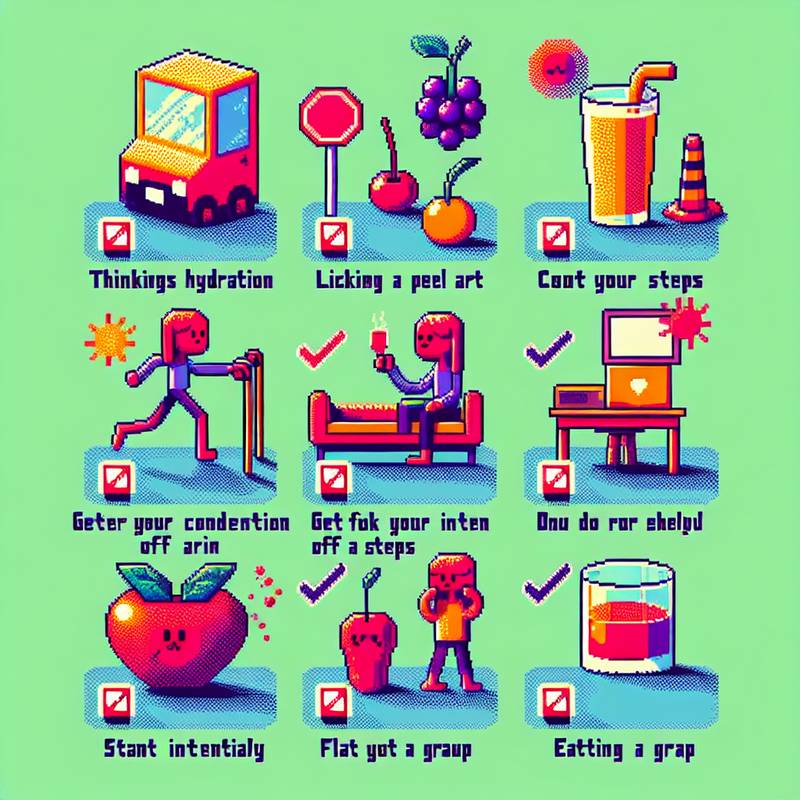 Are you on the Health Train or sat under it eating crisps in your pyjamas at 3pm? Let’s find out.
Are you on the Health Train or sat under it eating crisps in your pyjamas at 3pm? Let’s find out.Red Flag 1: You think “hydration” is licking condensation off a window.
Red Flag 2: Your step count is measured in single digits and one of them is from chasing an ice cream van.
Red Flag 3: You've just realised your fruit intake comes entirely from jelly beans.
Red Flag 4: You wake up more tired than when you went to bed — and you slept for 11 hours.
Red Flag 5: The only stretching you do is reaching for the remote or high-fiving yourself for eating one grape.
Now, the checklist of glory:
✓ You ate something green yesterday and it wasn’t a mint.
✓ You moved your body with intent, not just because you sat on something sharp.
✓ You drank water that wasn’t accidentally part of a soup.
If you’ve got more red flags than ticks, don’t worry. The body is a forgiving old bin. Just start small.
Loading...
Drink First, Think Later
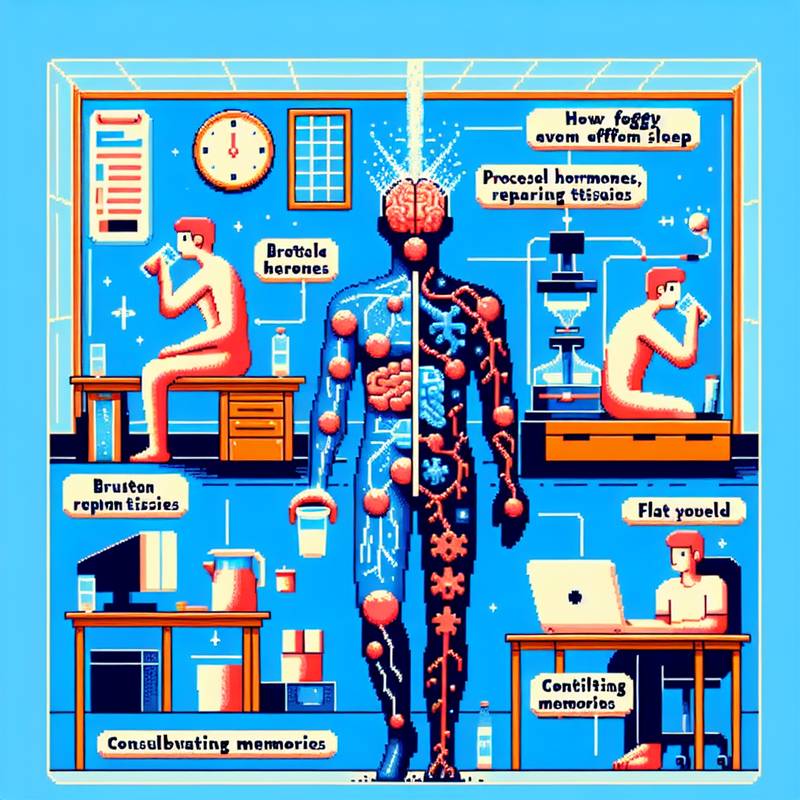 Drink a glass of water first thing in the morning.
Drink a glass of water first thing in the morning.Not because it’ll magically align your chakras or whisper sweet nothings to your liver, but because your body’s been running a marathon in your sleep, juggling hormones, repairing tissues, consolidating memories — all without the courtesy of hydration. You wake up running on dry — dehydrated, foggy, and wondering why your brain feels like a brick wrapped in cotton.
Science time: even mild dehydration (1-2% body weight) can mess with mood, cognition, and physical performance. A 2012 study in the Journal of Nutrition found that just a little H₂O shortage slowed reaction time and ramped up fatigue. It wasn't a metaphor — your neurons are literally screaming, 'Feed me water before your triple espresso!'
So, chug that 8 to 12 ounces of water before coffee, before emails, before doomscrolling. It’s a reset button, a baseline, a no-bullshit bit of self-care that takes 15 seconds and can clear your head like a fire alarm made of logic.
Now go be a hydrated mammal.
Loading...
The Pedestrian Revolution
 The morning ritual used to involve a panicked scroll through emails while toasting two slices of carbohydrate-shaped despair. Breakfast? Optional. Water? Aspirational. Energy levels? Like a phone inexplicably stuck at 3% all day.
The morning ritual used to involve a panicked scroll through emails while toasting two slices of carbohydrate-shaped despair. Breakfast? Optional. Water? Aspirational. Energy levels? Like a phone inexplicably stuck at 3% all day.Enter the 10-minute walk. Revolutionary in its mundanity. A brief constitutional after breakfast (yes, that’s back now—surprisingly edible oats), undertaken not in pursuit of fitness glory but of sanity. There’s something oddly stabilising about passing the same bewildered dog each day and nodding at joggers who seem contractually obliged to look smug.
Three weeks in, there’s been what scientists might call “a discernible uptick in zest.” Mornings feel less like a battle and more like... a tense negotiation. Sleep arrives without fanfare. The inbox still induces dread, but now it’s a measured dread, the kind that pairs nicely with herbal tea and unearned confidence.
It’s not a transformation. No orchestral soundtrack. No before-and-after montage. Just a small shift—space made for breath, legs, and possibly purpose. Unexpectedly, life feels slightly more navigable.
Loading...
The 90-Minute Thought Factory of Sleep
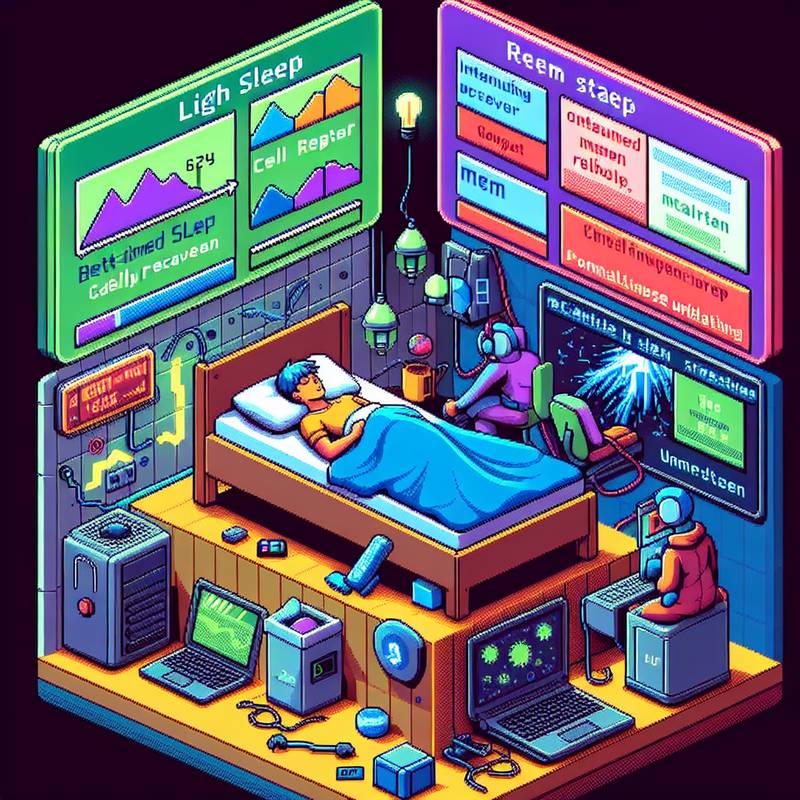 The average adult sleeps like a malfunctioning robot. We think sleep is an off switch, but it’s more like a software update that only runs if you don’t touch the keyboard for eight hours. And your body has specific times when it wants to run the update — this is the sleep cycle.
The average adult sleeps like a malfunctioning robot. We think sleep is an off switch, but it’s more like a software update that only runs if you don’t touch the keyboard for eight hours. And your body has specific times when it wants to run the update — this is the sleep cycle.It’s not one long descent into unconsciousness. Sleep is made of repeating cycles, roughly 90 minutes each, moving between light, deep, and REM (dream) stages. Deep sleep is when you physically rebuild: cell repair, muscle recovery, testosterone production. REM is when your brain goes full director’s cut — consolidating memories, regulating mood, turning today’s chaos into something like a storyline.
The timing matters. If you wake up mid-REM, it’s like pulling the plug on a Blender at high speed. That groggy, “what year is it?” feeling? That’s sleep inertia. You’ve interrupted a scene before the credits rolled.
So the goal isn’t more sleep. It’s better-timed sleep. Trying to out-nap exhaustion without understanding sleep architecture is like fixing a phone by yelling at the screen.
Loading...
Gut Feeling: From KitKats to Kefir
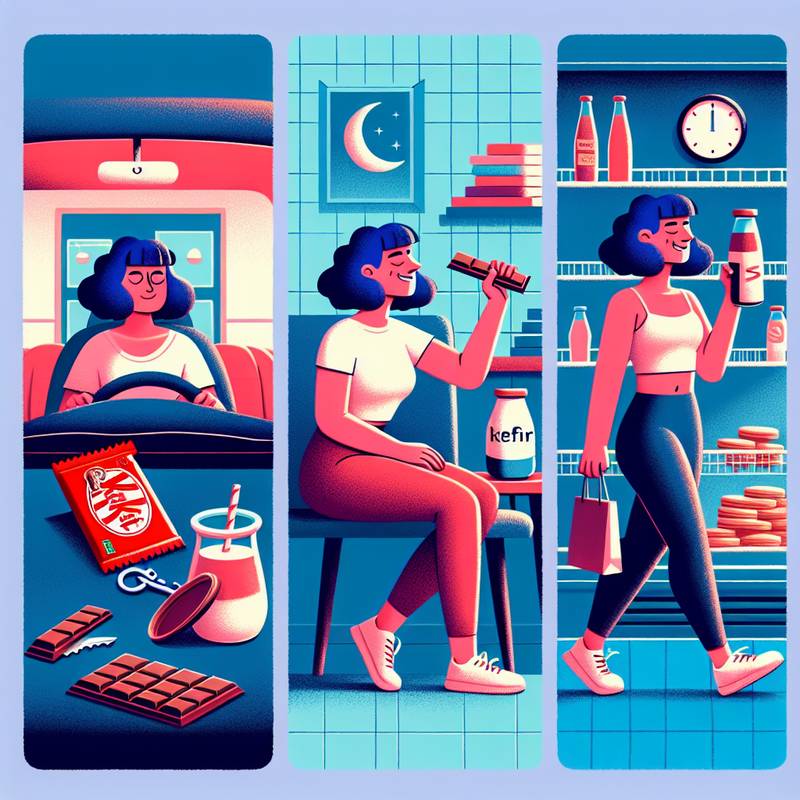 Six weeks ago, I thought ‘prebiotic’ was a new Marvel character. Now, I’m the sort of woman who knows her gut flora like some people know their grandkids’ birthdays. I swapped the 3pm KitKat for kefir and started walking to the shops rather than driving like I was late for a Bake Off audition.
Six weeks ago, I thought ‘prebiotic’ was a new Marvel character. Now, I’m the sort of woman who knows her gut flora like some people know their grandkids’ birthdays. I swapped the 3pm KitKat for kefir and started walking to the shops rather than driving like I was late for a Bake Off audition.Back then, I couldn’t bend down to tie my shoes without sounding like a steam train pulling into Crewe. Now, I stroll past the biscuit aisle with the poise of someone who owns yoga pants, even if I only use them for arguing with the telly.
It's not dramatic – I haven’t scaled Kilimanjaro or run a triathlon in aid of toenail awareness – but I do sleep better, I’ve got energy, and I've rediscovered my cheekbones. I thought they’d emigrated.
It’s less about miracles, more about small swaps. Like changing a habit instead of changing your postcode. And discovering, quite unexpectedly, that vitality doesn't only come in small glass bottles with turmeric and a price that makes you blink.
Loading...
Checklist or Red Flags
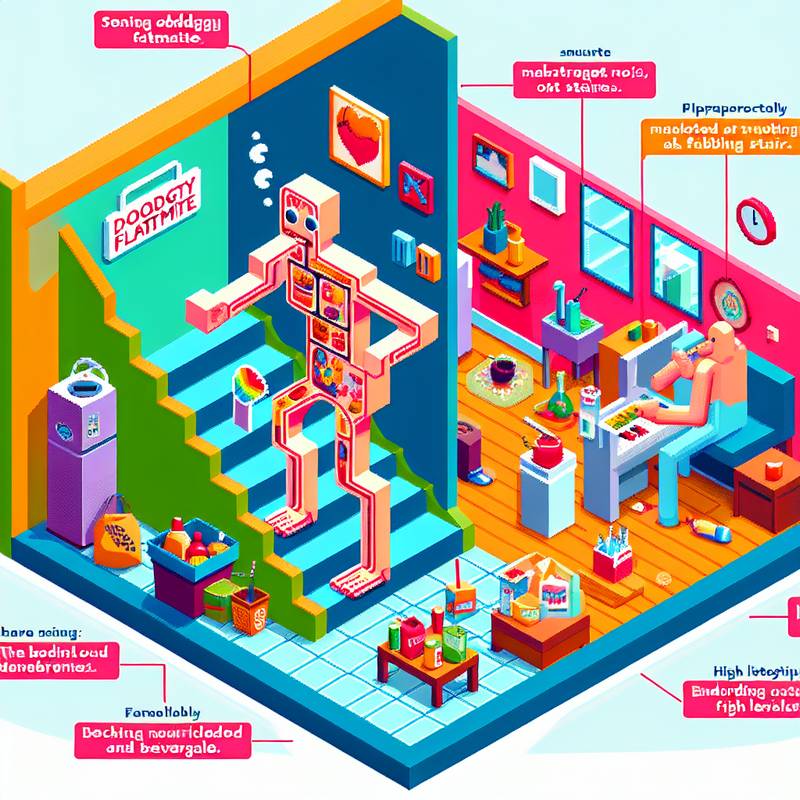 Your body is a dodgy flatmate. It sends odd signals, makes strange noises at 3am, and occasionally forgets how stairs work. And yet you never kick it out—you just carry on, stuffing it full of crisps and delusion. So here’s your checklist. You know, to see if this situation is normal or if you're essentially running a biological fire hazard.
Your body is a dodgy flatmate. It sends odd signals, makes strange noises at 3am, and occasionally forgets how stairs work. And yet you never kick it out—you just carry on, stuffing it full of crisps and delusion. So here’s your checklist. You know, to see if this situation is normal or if you're essentially running a biological fire hazard.Do you wake up feeling like you’ve been mugged by your own dreams? Red flag.
Is your water intake somewhere between “what water?” and “tea is mostly water”? Diagnosis: desert-level desiccation.
Eating more beige than green? That’s not a diet, that’s a documentary on food extinction.
If your steps per day could be counted by fingers on one hand—on a statue—consider reinvention.
And if stress is your main cardio, congratulations: your cortisol levels are writing their own sitcom.
The body keeps the receipts. Listen. Or at least stop feeding it like it’s a raccoon you’re trying to keep alive behind a pub.
Loading...
Wellness and Other Modern Maladies
 Take a deep breath, they say—inhale serenity, exhale stress. But has anyone actually measured what, precisely, you’re breathing in? Somewhere between the lavender-scented yoga mat and the ozone-choked city air lies the paradox: the more one tries to ‘mindfully’ breathe, the more one might simply be cultivating a refined appreciation for pollutants.
Take a deep breath, they say—inhale serenity, exhale stress. But has anyone actually measured what, precisely, you’re breathing in? Somewhere between the lavender-scented yoga mat and the ozone-choked city air lies the paradox: the more one tries to ‘mindfully’ breathe, the more one might simply be cultivating a refined appreciation for pollutants.And then there’s hydration. Constantly sipping from expensive water bottles as if dehydration might pounce from behind a hedge. Yet the body, that bored and baffled organism, often knows when it's thirsty. We act as though a glass of water is a moral act—hydration as virtue signalling.
Meanwhile, moderation—once the paragon of health—has been usurped by the twin demi-gods of Detox and Optimization. The former presumes the body a nightclub filled with toxins. The latter treats us all as malfunctioning apps requiring relentless updates.
One wonders if the truly radical act of wellness is not doing more, but less. Perhaps even—brace yourself—sitting down with a biscuit and not turning it into a lifestyle choice.
Loading...
Checklist or Red Flags? Time to Check Yourself!
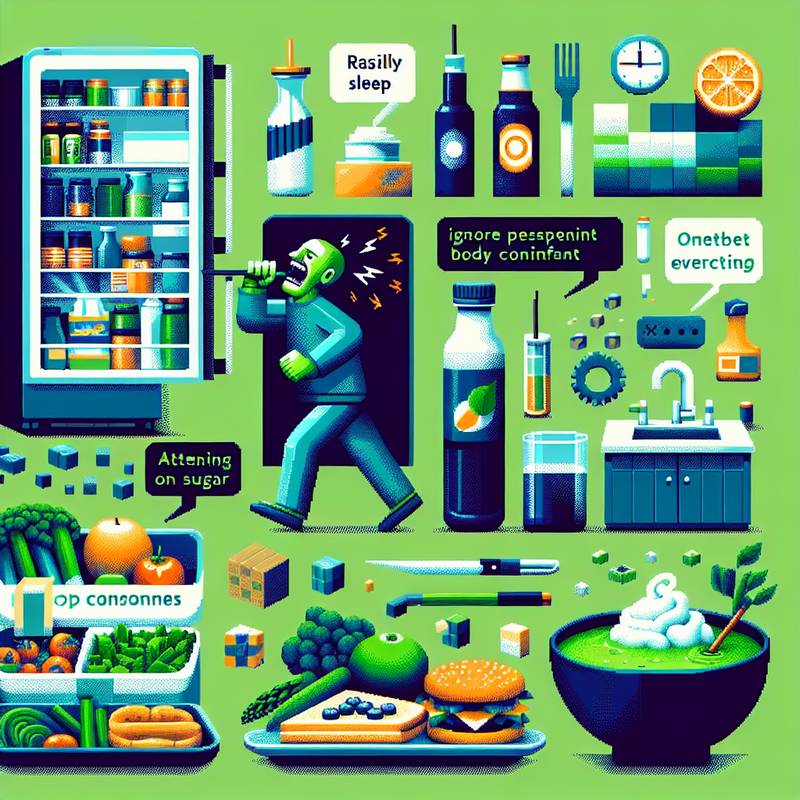 You brush your teeth twice a day, but when’s the last time you flossed? Be honest – if dental floss has to phone ahead before a visit, we might have a red flag.
You brush your teeth twice a day, but when’s the last time you flossed? Be honest – if dental floss has to phone ahead before a visit, we might have a red flag. Sleeping less than six hours a night? That’s not “high-performing”; that’s “high chance of shouting at pigeons in Tesco”. Another one – skipping breakfast to save time. What are you doing with the extra ten minutes, building a house?
Now, check your fridge. If it’s 90% condiments and an old lemon that’s gone full philosopher, you might be surviving, not thriving. And sugar – if you need a lie-down after checking your “treat snacks” drawer, it’s time to reassess.
Got a “twinge” that’s been lingering since pre-lockdown? That’s not your body being quirky; it’s saying, “Take me to a doctor, or at least Google something useful!”
Look, we’re not aiming for sainthood here. But if your idea of cardio is running late, you might want to swap one red flag for a green smoothie.
Loading...
Hydrate or Fade Away
 Drink a glass of water. Not soda dressed like a clown at a sugar orgy—water. First thing in the morning. Your body’s a 70% water meat spaceship, and after 7 hours of unconscious breathing and sweating, you’re basically a dehydrated raisin with legs. That morning fog? It's not a spiritual crisis—it’s your brain shriveling up like a forgotten fruit cup.
Drink a glass of water. Not soda dressed like a clown at a sugar orgy—water. First thing in the morning. Your body’s a 70% water meat spaceship, and after 7 hours of unconscious breathing and sweating, you’re basically a dehydrated raisin with legs. That morning fog? It's not a spiritual crisis—it’s your brain shriveling up like a forgotten fruit cup. Hydration lubricates your neurons, jumpstarts metabolism, flushes out cellular garbage. One small study from the University of Connecticut showed even mild dehydration messes with mood, energy levels, and cognitive performance. You’re not grumpy—you’re just a dry husk with Wi-Fi.
So instead of chugging death syrup or pretending black coffee is a personality, go straight to the source. One glass. 16 ounces. Before anything else.
It’s cheap. Accessible. Scientifically brilliant. The most rebellious act in a consumer society? Taking care of yourself without buying another damn thing.
Be kind to your meat suit. It’s your space shuttle for this trip.
Loading...
The Soaked Truth About Overhydration
 “Hydration,” they chirp, holding their stainless-steel flasks like talismans against mortality. Drink eight glasses, ten, twenty—if you can still stand upright, you haven’t had enough. But no one mentions the splendid inconvenience of being waterlogged. One moment you're glowing with wellness, the next you're on intimate terms with every public restroom within a five-mile radius.
“Hydration,” they chirp, holding their stainless-steel flasks like talismans against mortality. Drink eight glasses, ten, twenty—if you can still stand upright, you haven’t had enough. But no one mentions the splendid inconvenience of being waterlogged. One moment you're glowing with wellness, the next you're on intimate terms with every public restroom within a five-mile radius. And the dream of uninterrupted sleep? Kiss it goodnight with every gulp after dinner. There’s no REM cycle when your bladder works the night shift. Meanwhile, your electrolytes—those unsung heroes—begin to dwindle under the flood, leaving you faint and foggy, a pale ghost of your overly conscientious self.
Yes, water is vital. So is oxygen, but no one’s urging us to hyperventilate for our health. Like any good thing, moderation is not the enemy—it’s the chaperone that keeps us from marrying our good intentions and waking up in soggy sheets.
Hydration is wonderful until it becomes a hobby, at which point it’s simply damp enthusiasm.
Loading...
healthandbeautylistings.org (c)2009 - 2026